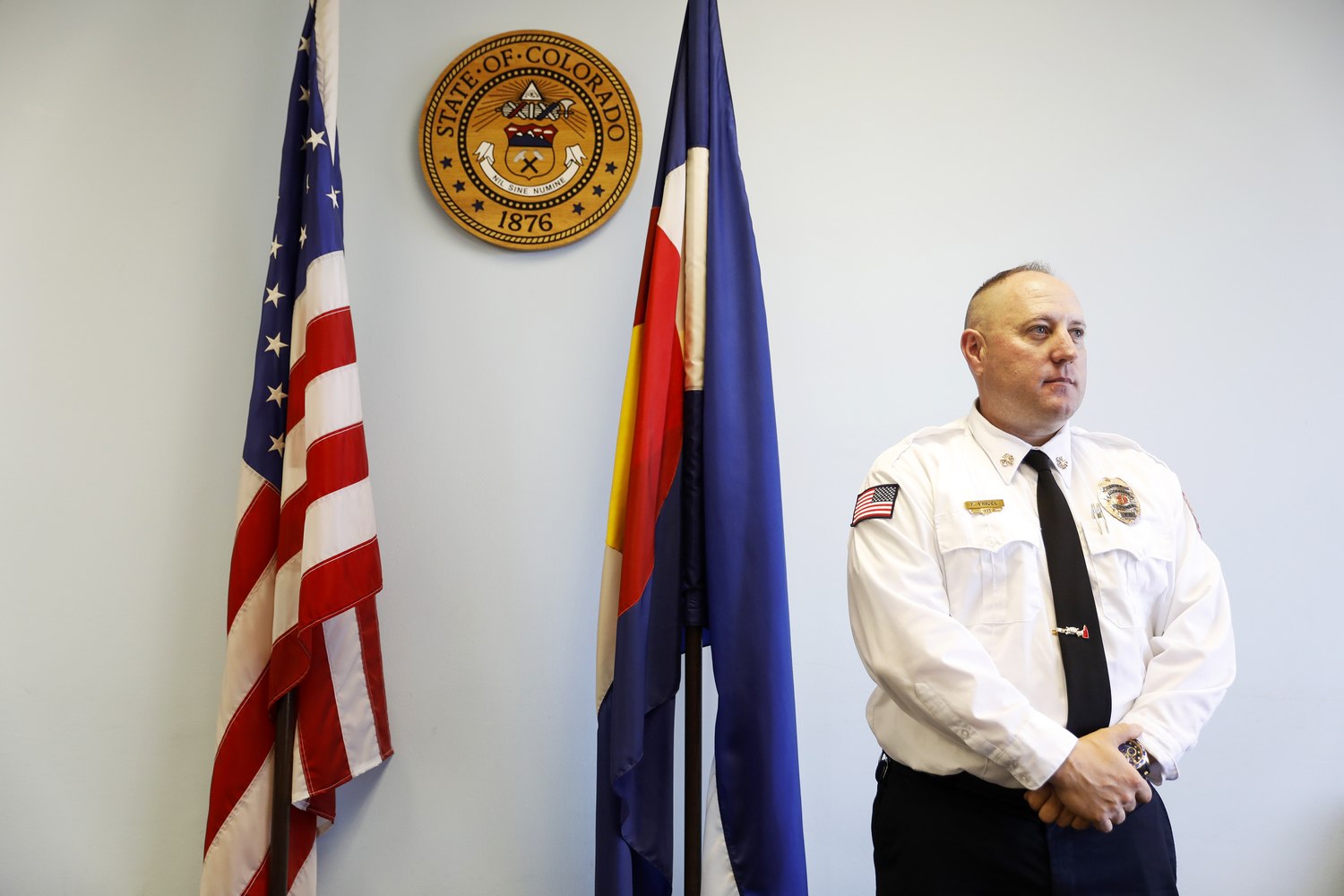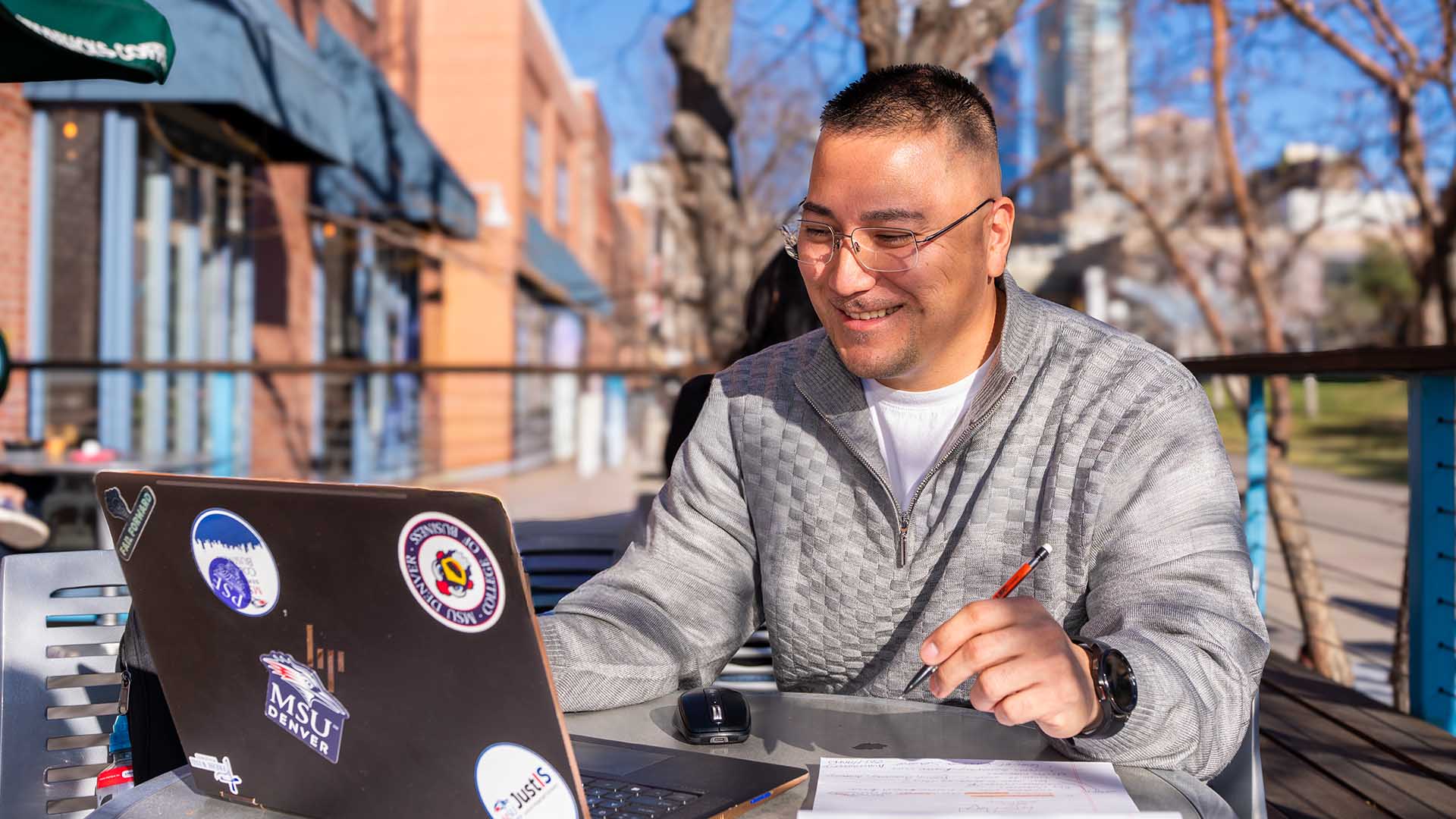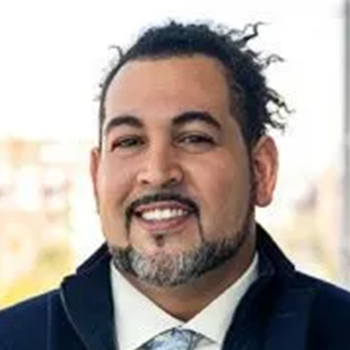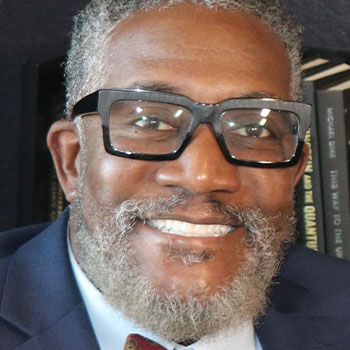Hail to the (fire) chief
Kevin Vincel is an MSU Denver student who's landed the first spot in a high-flying homeland security internship.

Colorado’s public safety intelligence hub is fusing a new link onto the homeland security information chain by putting a member of the fire service to work inside its secure walls for the first time.
It’s also the first time the Colorado Information Analysis Center, or CIAC (pronounced “kayak”), has targeted a segment of undergraduate students for its internship pipeline. Interns at the 12-year-old center have traditionally been master’s degree students and mostly worked on criminal cases.
Part of the Colorado Division of Homeland Security and Emergency Management, CIAC is Colorado’s “fusion center,” a counterpart to offices nationwide that facilitate information sharing under the U.S. Department of Homeland Security.
Wishing to plug into a network of future fire leaders, CIAC’s lead intelligence analyst Eric Dymond arranged the new undergraduate internship together with the faculty of MSU Denver’s Fire and Emergency Response Administration degree.

Recently enrolled in the FERA bachelor’s degree — not to mention a well-connected member of the fire service with a career’s worth of investigative expertise — Chief Kevin Vincel of the South Adams County Fire Protection District was tapped to fill the first slot.
After becoming chief in 2015, Vincel resolved to set an example by fulfilling his ambition to pursue a bachelor’s degree. Higher education has become a greater focus throughout the profession in recent years.
A certified fire and explosion investigator since 2001, with a deep background in arson investigation, hazardous materials and fire inspection, he’s had an associate degree in fire science under his uniform belt since 1998. His internship is set to start this spring, and he’s stoked — both to disseminate an intelligence product and to take insights back to his department.
“People don’t realize we’re learning every day how to respond to these types of events,” such as a terrorist threat or active-shooter scenario, Vincel said. He’s convinced all emergency personnel need to be ready. “In my opinion, it’s not ‘if’ but ‘when’ we’ll experience a threat or attack.”

Candidates for CIAC internships must pass a written test and take part in an interview. Finalists submit to a background check, polygraph test and drug screen. Those selected choose an area of focus such as terrorism, drug trafficking, human trafficking, gangs or one of the center’s other areas of specialization. Paired with mentors, they collaboratively agree on a project.
The internships are unpaid, and interns must work several hours a week at the center — but it pays off. Successful interns have gone on to work for the Secret Service, U.S. Homeland Security, FBI and Air Force Office of Special Investigations, with another headed to the National Counterterrorism Center soon.

Fostering relationships among agencies is part of CIAC’s mission. While in the past, that’s mostly involved law enforcement, “we want to reach out to the fire service,” Dymond says. “We want to send them as much information as humanly possible.”
Dymond hopes future internship candidates won’t be intimidated by the fire chief’s creds — the center wants to provide a learning experience for motivated FERA students who are interested in the center’s work:
“We want to expose them to homeland security — to help guide them and make them more marketable in the future.”







